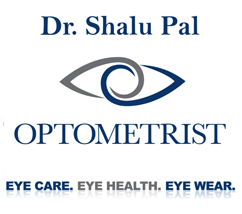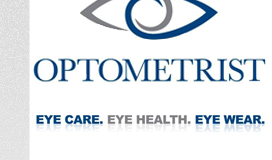AMD occurs when the macula, the area at the back of the retina that produces the sharpest vision, deteriorates over time.
Women younger than age 75 years who eat diets rich in the yellow plant pigments lutein and zeaxanthin may have a reduced risk of developing AMD
Women younger than age 75 years who eat diets rich in the yellow plant pigments lutein and zeaxanthin may have a reduced risk of developing the eye disease age-related macular degeneration, according to a report in the August issue of Archives of Ophthalmology, one of the JAMA/Archives journals. Age-related macular degeneration (AMD) occurs when the macula, the area at the back of the retina that produces the sharpest vision, deteriorates over time
The condition is the leading cause of blindness in aging Americans, according to background information in the article. There is no cure for AMD and limited treatment options are available to slow its progression, so research on preventive measures is essential. Previous studies have suggested a potential link between AMD and lutein and zeaxanthin, plant pigments known as carotenoids and found in leafy green vegetables, corn, egg yolks, squash, broccoli and peas. These compounds may reduce the risk of AMD by absorbing blue light that could damage the macula, by preventing free radicals from damaging eye cells and by strengthening eye cell membranes.
Suzen M. Moeller, Ph.D., University of Wisconsin, Madison, and colleagues with the Carotenoids in Age-Related Eye Disease Study (CAREDS) Research Study Group, assessed the effects of dietary lutein plus zeaxanthin in 1,787 women ages 50 to 79 years in Iowa, Wisconsin and Oregon. The women with the highest and lowest dietary intakes of lutein and zeaxanthin in the Women s Health Initiative, a large study of postmenopausal women that began between 1994 and 1998, were recruited to participate in CAREDS. At the beginning of the study, participants filled out a questionnaire to evaluate what their diets were like 15 years before the beginning of the study. Blood samples were taken to assess levels of carotenoids and color photographs of the retina were used to determine the presence and progression of AMD.
A higher intake of lutein plus zeaxanthin was associated with a lower risk of intermediate-stage AMD in women younger than age 75 years who had a stable intake of the carotenoids over the 15-year period and did not have previous AMD or a chronic disease, such as cardiovascular disease, diabetes or hypertension, that might alter their dietary habits. However, no significant difference was observed in the overall group of women or when comparing lutein and zeaxanthin levels in the blood to AMD occurrence. There was a weak association between dietary lutein plus zeaxanthin and advanced-stage AMD in all the women and in women younger than age 75 years.
The lack of a link between intake of carotenoids and AMD in the overall study group could be due to several factors, including the fact that the older women who participated in the study may have been more likely to have consumed higher levels of fruits and vegetables during their lifetimes than other older adults who have already died. Many nutrients may work together to provide protection against AMD, and the study may not have measured other dietary deficits that influence risk, the authors write. "This exploratory observation is consistent with a broad body of evidence from observational and experimental studies that suggests that these carotenoids may protect against AMD," they conclude. "Still, given the numerous analyses performed in this study, our results could be due to chance. More conclusive evidence from long-term prospective studies and clinical trials is needed to determine whether the intake of macular carotenoids themselves, or as markers of broader dietary patterns, can protect against intermediate AMD or delay progression in individuals who have early stages of the disease".





